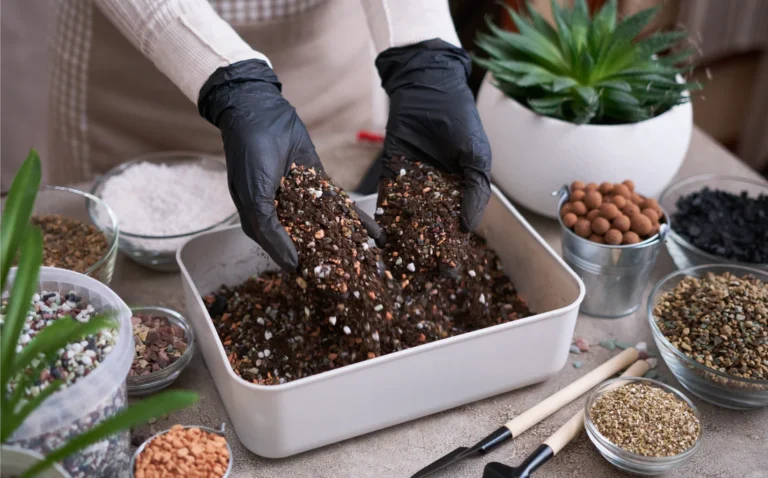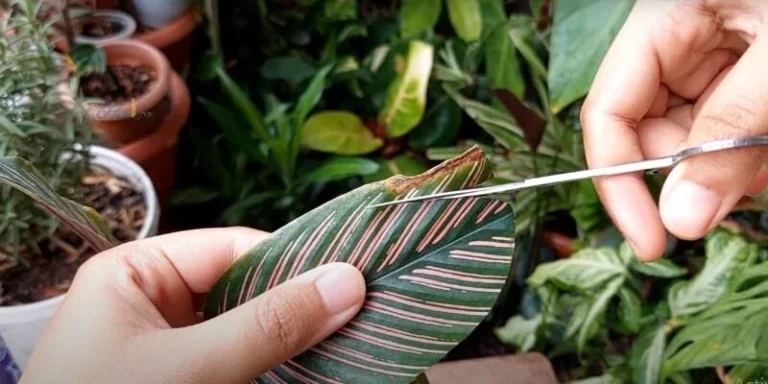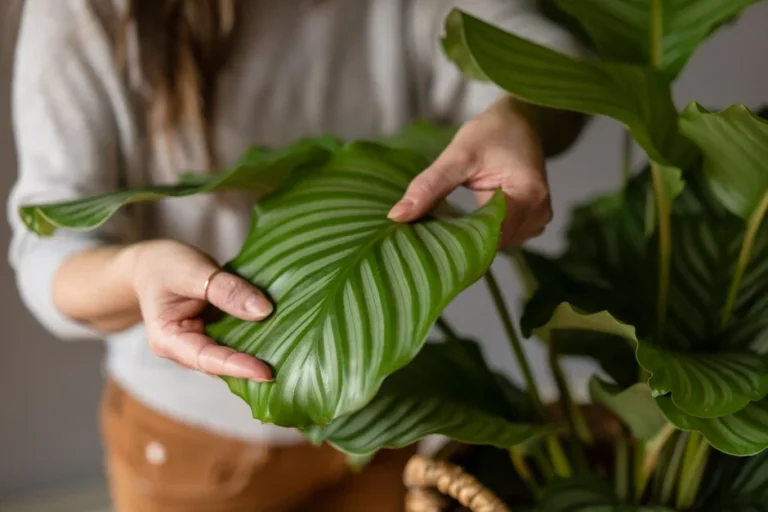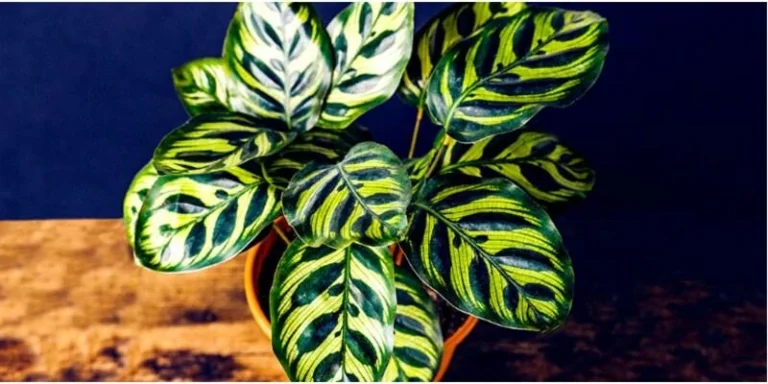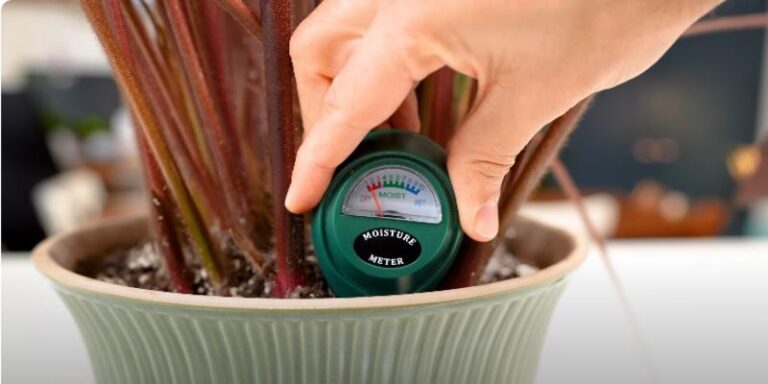Calathea Light Requirements – How Much Light Does it needs?
If you are a plant lover, you might have been enchanted by the stunning beauty of the Calathea plants. Calatheas are neotropical, rhizomatous, herbaceous perennial plants known for their unique leaf movements and vibrant and patterned foliage. Growing these plants can bring life and color to your indoor garden. But, growing them at home requires understanding Calathea light requirements.
Therefore, beginners can ask, “How much light does a Calathea plant need indoors?”
Calathea requires medium-indirect sunlight to thrive and maintain its uniquely patterned foliage. If it does not receive enough light, its leaves may look washed out. Similarly, exposure to too much direct sunlight can cause sunburn.
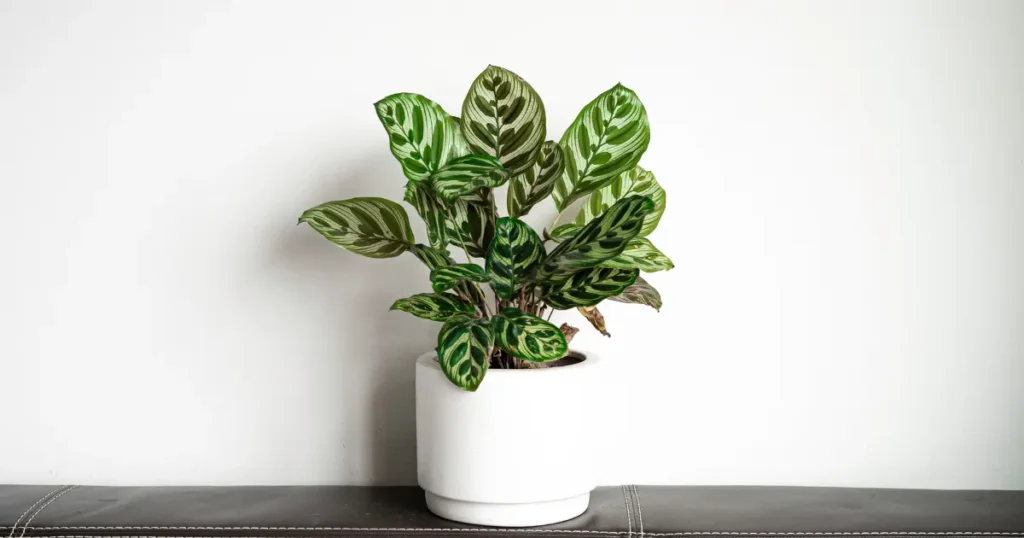
In this guide, we will discuss the basic Calathea light requirements and offer insights and tips to meet Calathea light requirements.
Understanding Basic Calathea Light Requirements
As Calathea plants originate from the lush undergrowth of tropical American rainforests, they constantly receive dappled sunlight filtered through the dense canopy above. This environment protects Calathea from direct, unfiltered sunlight and gives us a clue about what kind of light these plants will need when grown indoors: gentle, filtered sunlight.
To mimic their natural habitat, place your Calathea houseplant where it can bask in bright but indirect light. Avoid putting them under direct sunlight, especially during the harsh midday hours, because harsh, unfiltered light can cause the leaves to fade and even burn. Similarly, in a dark corner where light is scarce, your plant will not grow properly and may show a dull vibrancy of leaves.
The Best Rooms or Ideal Spots to Grow Calathea Plant
Where should I put my Calathea plant?
The ideal place for your Calathea houseplant is near a north—or east-facing window. These placements offer a soft, light touch early in the morning or late in the day, mimicking the Calatheas’ natural habitat.
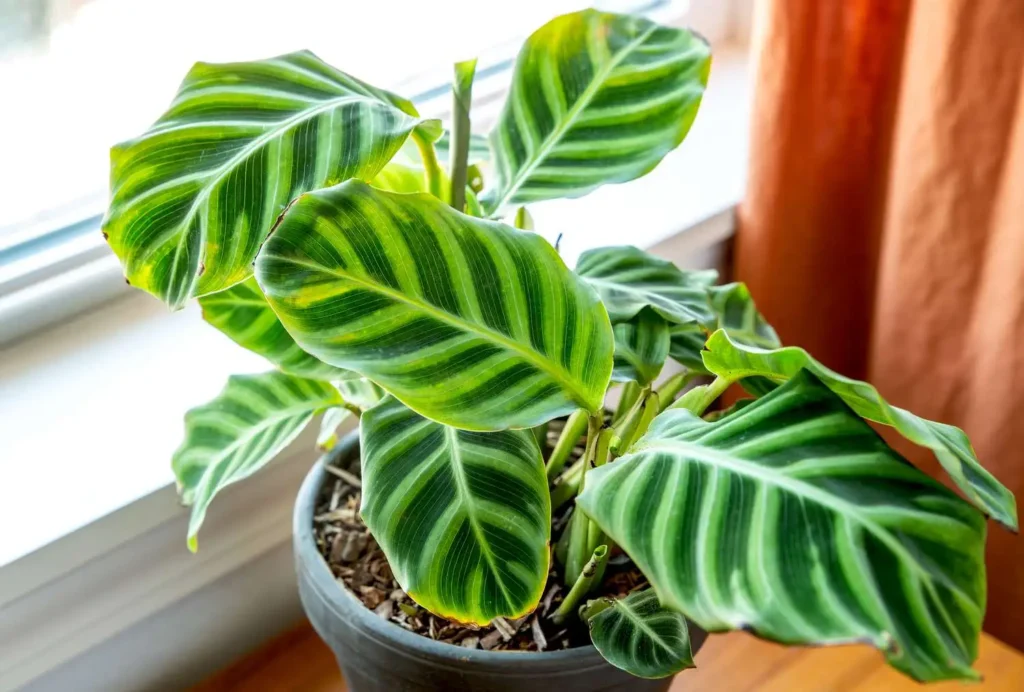
Calathea can also live comfortably when placed several feet from a south-facing window or closer to the window when a sheer curtain is used to diffuse the light. Keep moving the plant around every few weeks to find a perfect spot with ideal sunlight.
The available sunlight changes throughout the year, so monitor the conditions to ensure your plant receives adequate light. Calathea plants go dormant in the winter but still need medium sunlight to thrive. Therefore, move the plant to a sunnier window during the winter.
The Impacts of Incorrect Lighting on Calathea Growth
Exposure to incorrect lighting can cause severe issues for the Calathea plant.
1. Impact of Too Much Sunlight
Calathea leaves can lose their color and distinctive patterned foliage when exposed to too much direct sunlight. You may see a bleached look or worse and scorched patches on the leaves due to overexposure.
2. Impact of Low Light
When Calatheas don’t get enough light, they show leggy growth and stretch towards the nearest light source. In addition, the plant produces smaller new leaves with low frequency, and the plant’s overall vibrancy diminishes.
Also check How Often and When to Water Calathea?
How Much Sunlight Does a Calathea Need Throughout the Year?
Calatheas thrive best when they consistently get a stable amount of appropriately filtered light all year round. However, the intensity and duration of sunlight change throughout the year with the seasons, greatly impacting the growth of Calathea plants.
Seasonal Light Requirements
Seasonal light shifts significantly impact the pattern in which calatheas grow. During the brighter and longer summer days, shielding your Calathea from more intense light would be best.
On the other hand, during the shorter and darker days of winter, place your plant in a brighter spot or supplement it with an artificial grow light. Therefore, monitor how light changes affect your Calatheas’ growth as the year unfolds and adjust your plant’s positions.
For example, move your plant back from a window in the summer or closer in the winter.
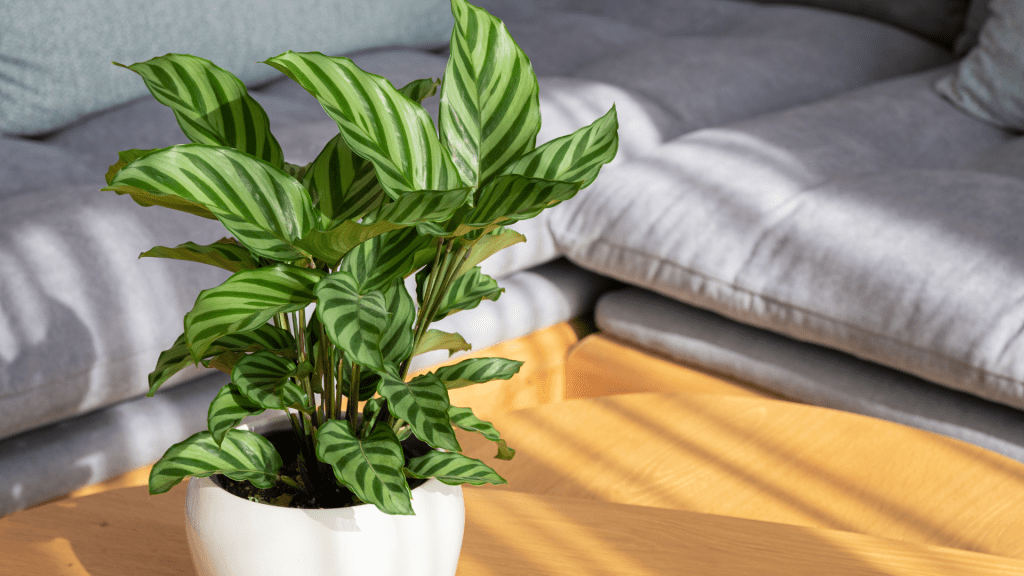
Provide Calathea with Artificial Lighting When Natural Light is Not Enough
In winter, when natural light is not enough or in rooms with limited natural light exposure, artificial light is a great option to provide increased sunlight. Grow lights, such as LED grow lights and lamps, can be a lifesaver in these conditions.
These grow lights feature a timer, which ensures that the light is activated daily and that your Prayer Plant receives light for a consistent duration. LED grow lights are energy efficient and promote healthy plant growth with a spectrum of light. However, maintain the correct distance between the light and Calathea to prevent leaf burn.
Also check Why is My Calathea Plant Drooping?
Light Requirements for Growing Calathea Outdoors
Calathea is winter-resilient in zones 11 and 12, but many gardeners move their prayer plants outside during the hot days of summer. The warm temperatures and elevated humidity help these plants thrive.
To protect your prayer plant from direct sunlight when grown outdoors;
Usually, medium indirect light is best, but some Calathea species can tolerate bright indirect sunlight.
Care for Calathea Lighting Requirements
Here are some practical plant care tips to help you meet the Calathea lighting requirements.
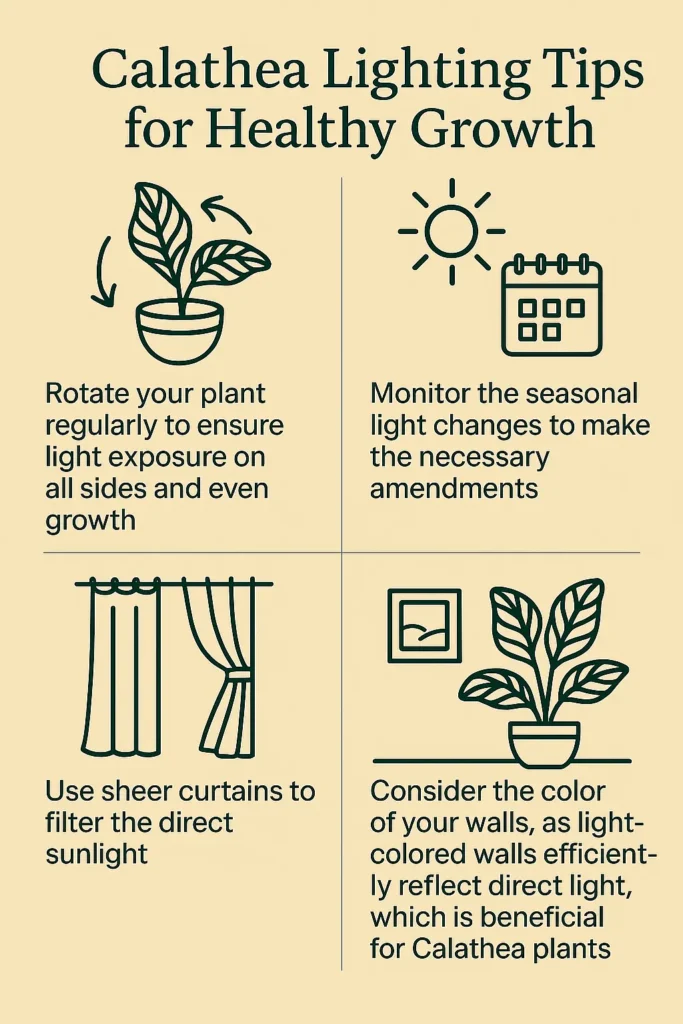
Final Thoughts Lighting Requirements and Calathea Care
So, how much sunlight does a Calathea need? Calathea plants need medium-to-bright indirect sunlight that mimics their natural habitat. However, seasonal changes also change the duration and intensity of the sun. Therefore, find an ideal spot, like a north- or east-facing window, to ensure proper light exposure for Calathea to thrive.
In addition, follow the plant care tips mentioned above to create a perfect lighting environment for your Calathea.

About Author
Hi, I’m Emily Davis, a passionate tropical plant enthusiast dedicated to sharing knowledge and expertise with plant lovers. Through his blog, I will provide guides, tips, and tricks for caring for tropical houseplants species like Alocasia, Anthurium, Calathea, Philodendron, Begonia, and many more that will help readers bring a touch of paradise into their own homes. With a deep love for the vibrant colors and lush textures of tropical flora, I’m committed to inspiring others to cultivate their own tropical oasis.

